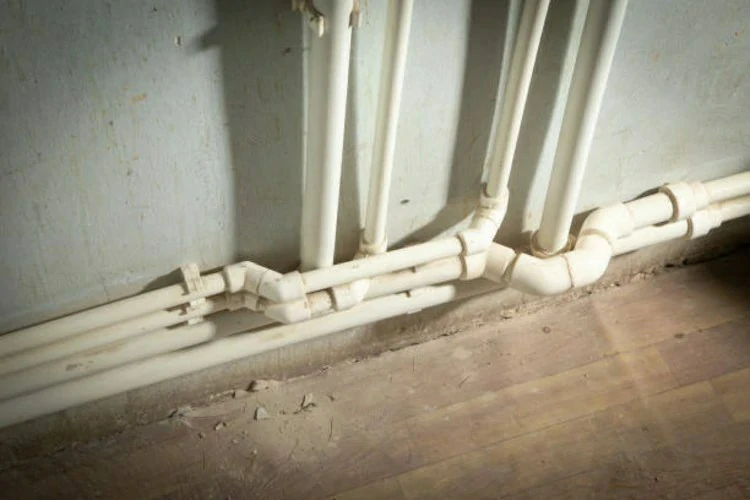Understanding the Role of PVC Pipes in Irrigation Systems
PVC (Polyvinyl Chloride) pipes play a crucial role in modern irrigation systems, offering numerous benefits and considerations for efficient water management. From agricultural fields to residential gardens, PVC plumbing facilitates the conveyance of water for irrigation purposes. This section explores the advantages and considerations of using PVC pipes in irrigation systems.
Advantages of PVC Pipes in Irrigation
Durability and Longevity
PVC pipes are renowned for their exceptional durability and longevity, making them ideal for use in irrigation systems. Unlike metal pipes, PVC pipes are resistant to corrosion, rust, and chemical degradation, ensuring a long service life even in harsh agricultural environments. This durability minimizes the need for frequent replacements and maintenance, reducing downtime and costs for irrigation operations.
Cost-Effectiveness
One of the primary advantages of PVC plumbing in irrigation systems is its cost-effectiveness. PVC pipes are more affordable than many other piping materials, making them a budget-friendly choice for irrigation projects of all sizes. The lower material costs, combined with the ease of installation and long-term durability, result in overall cost savings for farmers and landscapers.
Smooth Flow and Hydraulic Efficiency
PVC pipes feature a smooth interior surface that promotes efficient fluid flow and hydraulic efficiency in irrigation systems. The smooth bore of PVC pipes minimizes friction and turbulence within the pipeline, reducing energy consumption and pressure losses associated with pumping. This characteristic ensures uniform water distribution across the irrigation network, optimizing crop yields and water conservation efforts.
Resistance to Corrosion and Chemicals
Another key advantage of PVC pipes in irrigation systems is their resistance to corrosion and chemicals. PVC pipes can withstand exposure to fertilizers, pesticides, and other agricultural chemicals without degradation, ensuring reliable water conveyance without the risk of contamination or leakage. This resistance to corrosion and chemicals enhances the reliability and safety of irrigation systems in agricultural settings.
Considerations for PVC Pipes in Irrigation
Proper Installation and Alignment
To maximize the effectiveness of PVC pipes in irrigation systems, proper installation and alignment are essential. Ensure that PVC pipes are installed according to manufacturer recommendations, with proper support and alignment to prevent sagging or misalignment. Proper installation practices help maintain the integrity and performance of the irrigation system over time.
UV Exposure and Protection
Exposure to ultraviolet (UV) radiation from the sun can degrade PVC pipes over time, particularly in above-ground irrigation applications. To mitigate UV damage, consider using PVC pipes with UV-resistant formulations or applying protective coatings or wraps to shield the pipes from direct sunlight. Proper UV protection helps prolong the service life of PVC pipes in outdoor irrigation systems.
Regular Inspection and Maintenance
Regular inspection and maintenance are critical for ensuring the continued performance of PVC pipes in irrigation systems. Periodically inspect PVC pipes for signs of damage, leaks, or degradation, and promptly repair or replace any compromised sections. Additionally, flush the irrigation system periodically to remove sediment and debris that may accumulate in the pipes, ensuring optimal flow and efficiency.
Frost Protection in Cold Climates
In regions prone to freezing temperatures, protect PVC pipes from frost damage by insulating exposed sections or draining the system before winter. Frozen water inside PVC pipes can cause them to crack or burst, leading to costly repairs and downtime for irrigation operations. Implementing frost protection measures helps safeguard PVC pipes and ensures uninterrupted water supply during cold weather conditions.
Conclusion
PVC plumbing plays a vital role in irrigation systems, offering numerous benefits and considerations for efficient water management. From durability and cost-effectiveness to hydraulic efficiency and chemical resistance, PVC pipes provide a reliable solution for conveying water in agricultural and landscaping applications. By understanding the advantages and considerations of PVC pipes in irrigation systems, farmers, landscapers, and irrigation professionals can optimize water distribution, enhance crop yields, and promote sustainable water use practices.
IFAN is a Chinese manufacturer of plastic pipes, fittings and valves with 30 years of experience. If you are interested in IFAN copper fittings, copper valves, plastic pipes and fittings, please contact us. IFAN offers you a variety of standard pipes to meet your specific needs. Click below to learn more about IFAN’s wide range of affordable and cost-effective valve products and piping system related products.
We will reply your email or fax within 24 hours.
You can call us at any time if there is any question on our production.
For more information,pls visit our webside https://ifanpro.com/
Pls Mailto: [email protected]
Whatsapp: + 86 19857948982














Recent Comments